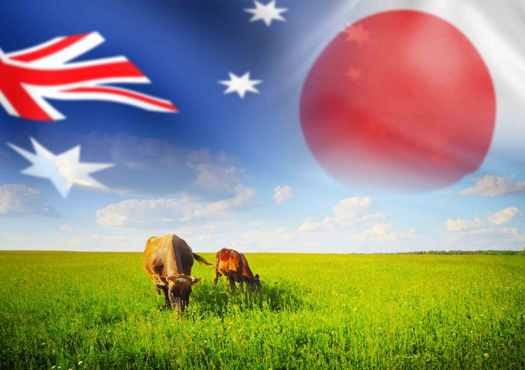What a great future focused success for the Abbott Government; a landmark trade deal which makes us the first major agricultural exporting economy to reach a liberalising agreement with Japan.

The effort of years of negotiation and persistence, starting with John Howard back in 2005, has finally paid off with tariffs and duties on 97% of Australian exports to Japan set to reduce or be removed. This will add billions of dollars to the Australian economy over the coming years, including reducing the cost of household goods for Australian families by hundreds of dollars a year.
It was an unexpected win for some, with tariffs to be lifted on Australian wool, cotton, lamb and beer exports to Japan who has agreed for the first time to also reduce tariff barriers on Australian beef and dairy in a deal worth $2.8 billion to the industry over 20 years.
Australian agriculture will also enjoy unprecedented access to Japanese markets with tariffs eliminated on the majority of horticultural products.
Cheese and wine makers and sea food producers will also be given greater access to sell product into Japan with tariffs cut on some while other will benefit from a lifting of quotas, and almost a doubling of quota for dairy products. Cheese exports are worth $372m a year but are subject to annual quota of 27,000 tonnes, which is set to be expanded with a further 20,000 tonnes in stages over two decades.
Australia’s $226m sugar export industry will see the tariff on premium sugars eliminated and the levies reduced for standard raw sugar.
Other milk exports will gain an immediate cut in all Japanese duties to expand sales forth about $53m a year.
As predicted, rice was excluded from the deal.
The deal on liberalised two-way trade now estimated at $70 billion a year will also see tariffs cut for Australian frozen beef exports into Japan from 38.5% to 19.5% and fresh beef to 23.5% over the next 15 years, adding an estimated $2.8billion to the size of the beef industry over two decades. Australian beef exports to Japan are worth $1.4bn a year.
Tariffs on canned products such as tomatoes, peaches and pears, plus fruit and vegetable juices are now zero.
The deal is the first of its kind to be struck by Japan with any country, affording Australian most favoured status on both beef and agriculture trade.
The full impact of this agreement is yet to be studied; however a government analysis in 2005 suggested that a deal would add between 0.66 and 1.79 per cent to Australian GDP in 2020. This was calculated to add $39bn to the economy over two decades.
While this agreement only goes half way on beef it is a serious step in the right direction, it also locked Australia in line with our biggest beef trading competitor, the U.S., who have much greater market power over Japan, so watch this space.
It’s now up to industry to move swiftly to prepare to take advantage of this extended playing field by ramping up the marketing of our agricultural products in Japan and continuing to improve productivity and efficiency at home in Australia.

Related Story
Government targets China free trade deal by Matt McDonald
http://www.ferret.com.au/articles/news/govt-targets-china-free-trade-deal-n2513551#FWmcqLxTFGmkxXIl.99

